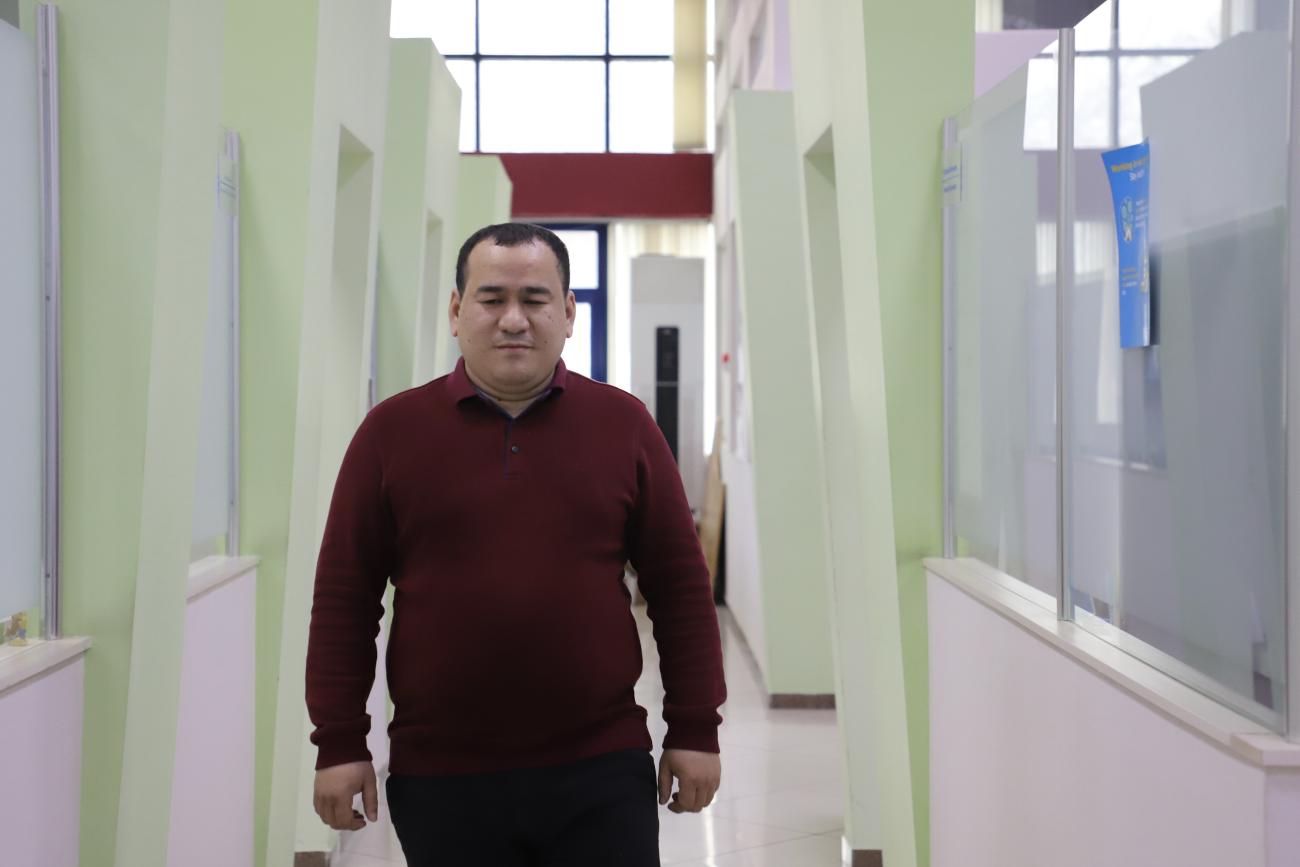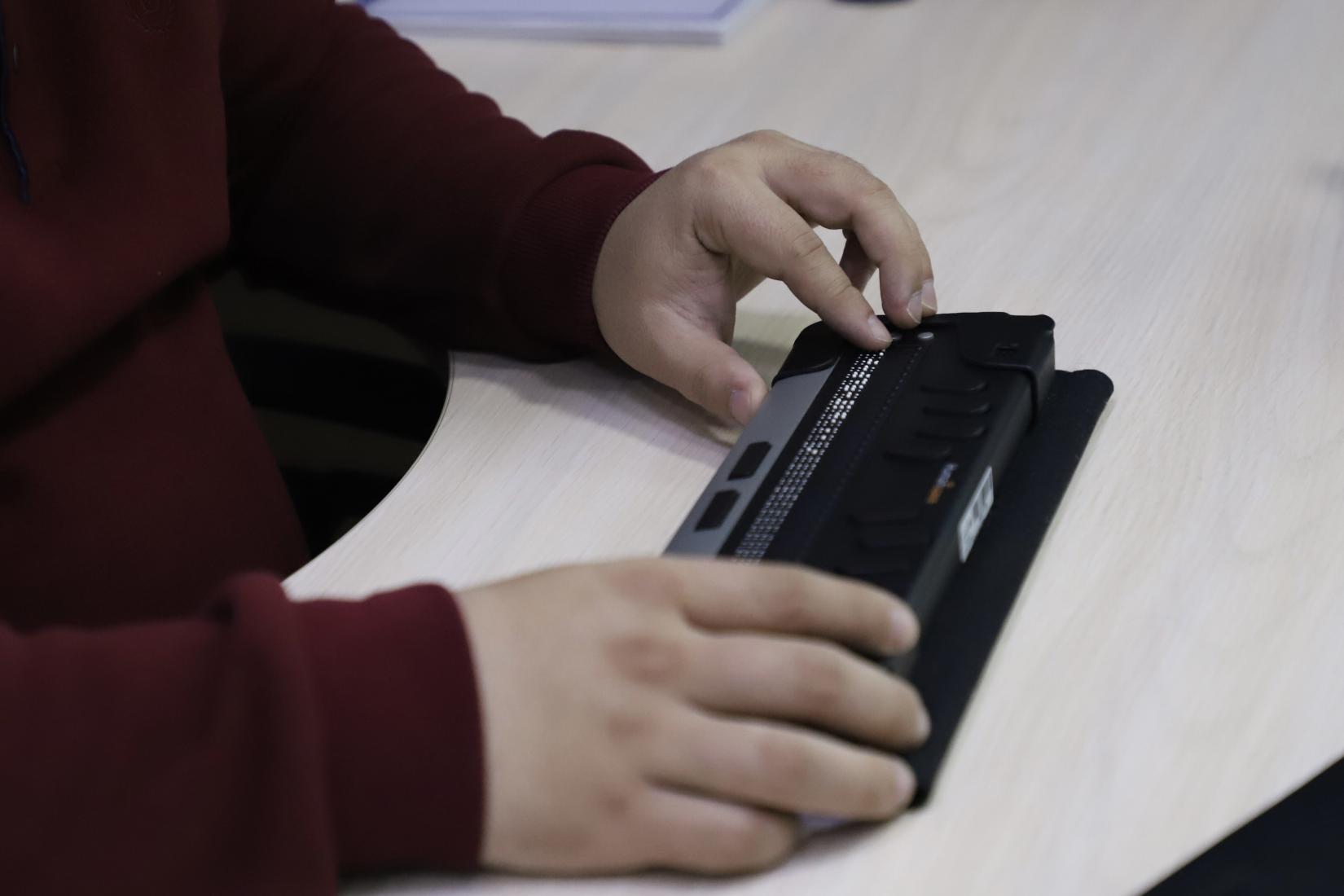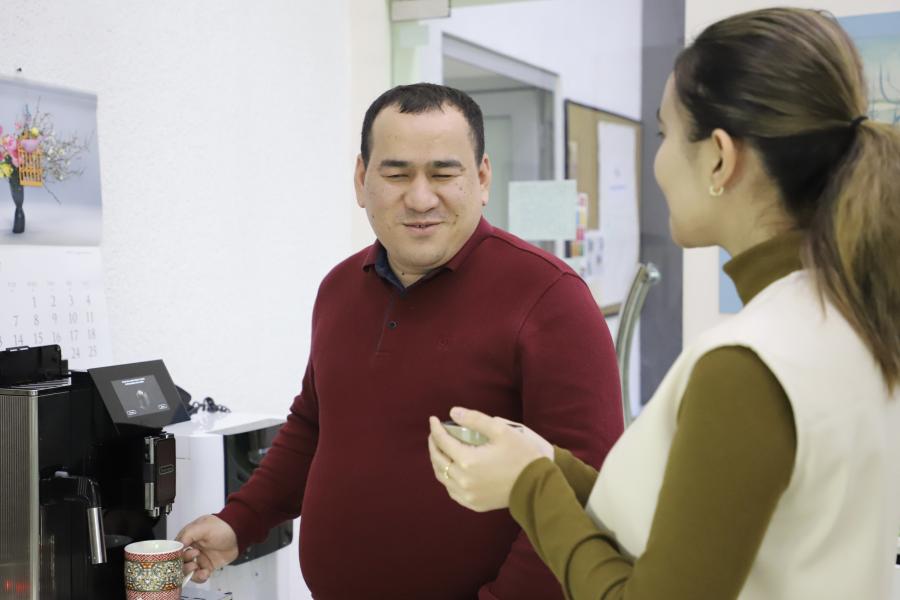Dreaming beyond the impossible: A story of disability rights activism in Uzbekistan

Meet Jurabek Kakharov, a disability rights activist from Uzbekistan and UNICEF consultant on disability inclusion.
“As a child, I often stood by the window of my room and looked out into the street, trying to catch the ringing laughter and funny jokes of the neighborhood children and friends. I simply wanted to get out of my room and play hide and seek or on a swing and just run around the streets. But I could not,” recalls Jurabek.
Jurabek Kakharov was born in Surkhandarya region located in the extreme south-east of Uzbekistan. At the age of five, he observed the first stages of vision loss as a result of a brain injury.
“Unfortunately, the loss of vision became the main obstacle for me to communicate with my peers. But the desire to fully realize my potential and be a part of society has never left me; it was always with me,” says Jurabek.
In 2017, Jurabek got his first job at the Center for Youth and Children with Disabilities in Tashkent after graduating from the National University of Uzbekistan, majoring in English philology.
“My childhood dream was to help people, and this dream is still my internal locomotive of action. While working and closely interacting with young people at the Center, I realized that young people had limited access to information, especially to Braille. Braille opens up many opportunities for blind and visually impaired people; it transforms their world, expands their knowledge, enriches intellectually and improves employability.”

In 2019, Jurabek founded a private printing house “Braille Print.” Over the course of several years, dozens of books by popular Uzbek writers and poets, and a collection of Uzbek folk tales for children were translated into Braille in the printing house and provided to blind and visually impaired young people.
Currently, Jurabek works on disability inclusion, as part of the UN Joint Programme “Transformation of Social Service Delivery: Implementing Human Rights-Based Approach for Children, Youth and Women with Disabilities in Uzbekistan” funded by the UN Partnership on the Rights of Persons with Disabilities Multi-Partner Trust Fund and implemented by UNICEF, UNDP, UNFPA and OHCHR. The programme specifically focuses on providing accessible services that keep the specific needs of vulnerable groups at the heart to support their autonomy and inclusion. For instance, early identification and early interventions services at the community level that will help prevent the institutionalization of children with disabilities. Also, enhancing capacity of service providers that will drive to increased inclusion of women and girls with disabilities in programmes addressing gender-based violence.
In the framework of the programme, UNICEF jointly with Association of Disabled People of Uzbekistan has been conducting a series of trainings that empower and inform Organizations of People with Disabilities. In 2022, the trainings were held in 3 regions of Uzbekistan with more than 90 people, including representatives of these organizations as well as self-initiative groups and people with physical, visual, hearing disabilities. Participants gained knowledge about the essence of the UN Convention on the Rights of Persons with Disabilities, the rights of children with disabilities and their parents, and the operationalization and registration of NGOs.
In June 2021, Uzbekistan ratified the and reiterated its commitment to human rights and the importance of promoting the rights of persons with disabilities in line with the principles of the Convention, as well as the principle of Leaving No One Behind.

Promoting the rights and inclusion of people with disabilities in line with the Convention and the Sustainable Development Goals, has been a key long-standing priority for the UN Country Team in delivering together in Uzbekistan.
“Working in this programme is an opportunity to change the lives of people with disabilities for the better and make our society more inclusive. Every time I meet children with disabilities, I remember myself: standing near the window. I firmly believe that our work can help tens of thousands of boys and girls in Uzbekistan live happily without fear and stigma in a society that does not leave them behind,” says Jurabek with a smile.
Written by Anvar Meliboev Public Information Officer, UN Information Office in Tashkent.To learn more about the UN's work in Uzbekistan, please visit uzbekistan.un.org.


